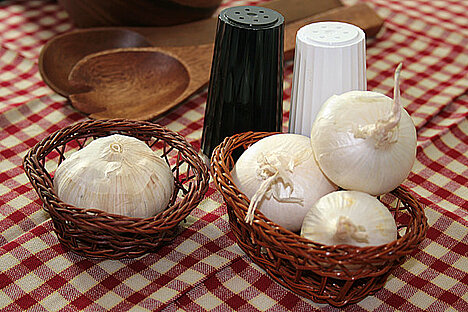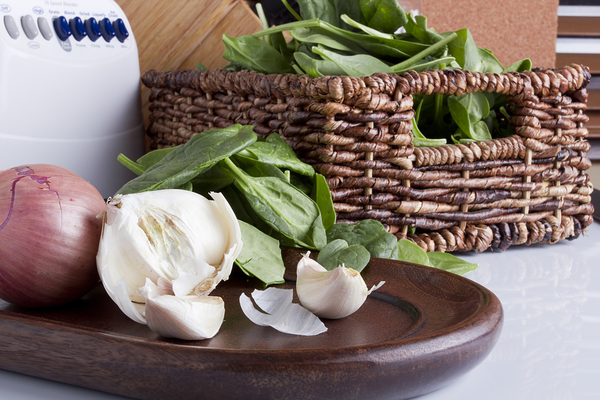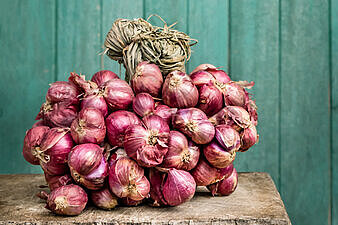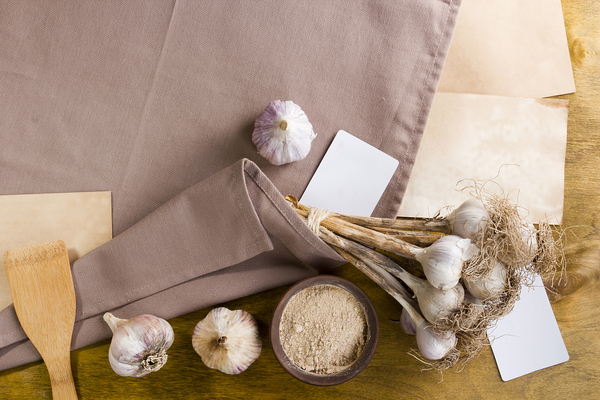Allicin

You may have heard of allicin, a substance found in garlic and other allium plants. But what is allicin and how does it affect your dog? In this article, you'll find out more about this ingredient and its advantages and disadvantages for your four-legged friend's health.
What is allicin?
Allicin is a sulphur-containing compound that is produced when garlic or other allium plants such as onions, shallots or chives are crushed or crushed. Allicin is responsible for the typical smell and taste of these plants and also has an antibacterial, antiviral and antifungal effect. However, allicin is very unstable and quickly breaks down into other compounds when exposed to heat, light or air.
What are the benefits of allicin for dogs?
Allicin can have some positive effects on your dog's health when fed in small amounts. For example, allicin can:
- Boost the immune system and prevent or fight infections
- Promote blood circulation and lower blood pressure
- Regulate cholesterol levels and improve heart health
- Support digestion and reduce flatulence
- Repel parasites such as ticks, fleas and worms
- Keep the coat shiny and the skin healthy
What are the disadvantages of allicin for dogs?
However, allicin is not just good for your dog. If it is fed in too large quantities or too frequently, it can also be harmful. For example, allicin can:
- Trigger an allergic reaction or aggravate an existing allergy
- Cause gastrointestinal complaints such as nausea, vomiting or diarrhea
- Inhibit blood clotting and increase the risk of bleeding
- Impair or damage liver or kidney function
- Cause anemia by destroying the red blood cells
How much allicin should I give my dog?
The question of the correct dosage of allicin for dogs is not easy to answer, as it depends on various factors such as your dog's weight, age, state of health and individual tolerance. In addition, the allicin content varies depending on the type and quality of the plant. Avoid garlic powder, oil or capsules as these are too concentrated and can easily lead to an overdose. As a rule of thumb, you can use the following guidelines as a guide:
- For small dogs (up to 10 kg): maximum 1/4 teaspoon per day
- For medium-sized dogs (10 to 25 kg) : maximum 1/2 teaspoon per day
- For large dogs (over 25 kg): maximum 1 teaspoon per day
Allicin is an interesting ingredient that can have both advantages and disadvantages for your dog.
Properties 3
Are you looking for other ingredients with a specific property?
Just click on them to find more.
If you notice any signs of hypersensitivity or poisoning in your dog, you should see your vet immediately. We are not a substitute for a vet, but we try to be as accurate as possible. Every dog reacts differently and we recommend you get a second opinion or consult your vet if in doubt.
Stay healthy and take good care of your four-legged friend!😊
Similar to Allicin
Garlic is a plant from the onion family that forms a bulb with several cloves. Each clove contains an active ingredient called allicin, which is responsible for the typical smell and taste of...
Onions are vegetables that belong to the allium family. They have a round shape, a brown or red skin and white or purple layers inside. Onions have a pungent taste and an intense smell that often...
Shallots contain a substance called N-propyldisulphide, which can damage the red blood cells of dogs. This can lead to anemia, which is a lack of red blood cells that carry oxygen around the body....
Garlic powder is dried and ground garlic. It contains the same ingredients as fresh garlic, especially allicin, a sulphur-containing amino acid that is responsible for the typical smell and taste....



